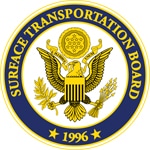
In a letter dated, January 14, SMART TD President John Previsich wrote the Surface Transportation Board opposing a Canadian Pacific Railway proposal to acquire Norfolk Southern Railroad.
See the letter in its entirety below or click here to read the letter.
“Dear Chairman Elliott, Vice Chairman Miller and Member Begeman:
“I am writing to you on behalf of the Transportation Division of the International Association of Sheet Metal, Air, Rail and Transportation Workers (SMART TD), regarding Canadian Pacific Railway’s (CP) proposal to acquire Norfolk Southern Corporation (NS).
“As the representative of more than 125,000 active and retired railroad workers, I am writing to convey that we are strongly opposed to this takeover proposal. This action has the real potential for a far-reaching, detrimental impact on America’s rail network, including lost jobs and an equally negative impact on those who ship by rail. We also strongly oppose CP’s scheme to circumvent the regulatory requirements through the establishment of a voting trust to assume control in advance of regulatory approval. Such a trust would violate existing statutory and regulatory prohibitions regarding unlawful control.
“CP’s relentless pursuit of short-term profit with little regard to the impact on the greater good—workers, communities and our nation’s rail shippers is well known. History shows what happens when railroads harvest revenue for immediate self-enrichment of officers and stockholders at the expense of investing in maintenance and capital projects to ensure a viable industry well into the future. If approved, this merger would mean fewer railroads and less competition in the industry. The certain results will be fewer rail jobs, higher freight rates and diminished rail service.
“E. Hunter Harrison, CEO of CP, has already boasted in the press that NS will be a “cash cow” because he will be able to sell off what he says are “excess” rail yards for real estate development. He has also stated that NS has a “gold plated” infrastructure that is overly maintained and he could greatly reduce capital investment on that road. Such a disinvestment in the nation’s rail network could only occur in a merged environment with diminished competition among carriers. The end result is higher costs and reduced service for the nation’s shippers.
“In addition, Harrison recently announced that he will reduce capital spending on CP in 2016 by $400 million and extend his moratorium on purchasing new locomotives until 2018 or longer on that railroad. His strategy is clear; use up the current railroad infrastructure and wear out the locomotives, leaving a railroad that will need dramatic investment once he leaves. The railroads’ officers, investment bankers, consultants and stockholders will walk away greatly enriched at the expense of the future health of our nation’s rail service. In fact, a January 12, 2016 white paper issued by CP in Calgary reveals that CP’s scheme for NS is to improve service by reducing investment, a plan that they note in their closing remarks may not produce the desired results: “CP’s forward-looking information involves numerous assumptions, inherent risks and uncertainties that could cause actual results to differ materially from the forward-looking information” and that “forward-looking information is not a guarantee of future performance.”
“In summary, if Harrison is allowed to take his CP model to the NS, through either a voting trust or with regulatory approval, the end result will produce an irrecoverable disinvestment in NS’s infrastructure, substantially diminished freight service, and a marked loss of jobs.
“We urge members of the STB to safeguard our jobs and protect our nation’s freight rail infrastructure and those who ship by rail by advocating for the public interest, not enabling short term profits for the benefit of a few at the expense of the future viability of our nation’s rail system. We ask that the STB reject the proposed acquisition and also take legal action as required to prevent the circumvention of your regulatory authority through the establishment of a voting trust.”
 Last week, President Obama signed the Surface Transportation Board (STB) Reauthorization Act of 2015 into law, which realigned the STB an independent entity, autonomous of the U.S. Department of Transportation.
Last week, President Obama signed the Surface Transportation Board (STB) Reauthorization Act of 2015 into law, which realigned the STB an independent entity, autonomous of the U.S. Department of Transportation.  The U.S. Senate recently pointed the way forward for the U.S. Surface Transportation Board (STB) on the issue of ensuring sufficient revenue at freight railroads to pour back into the nation’s infrastructure.
The U.S. Senate recently pointed the way forward for the U.S. Surface Transportation Board (STB) on the issue of ensuring sufficient revenue at freight railroads to pour back into the nation’s infrastructure.
